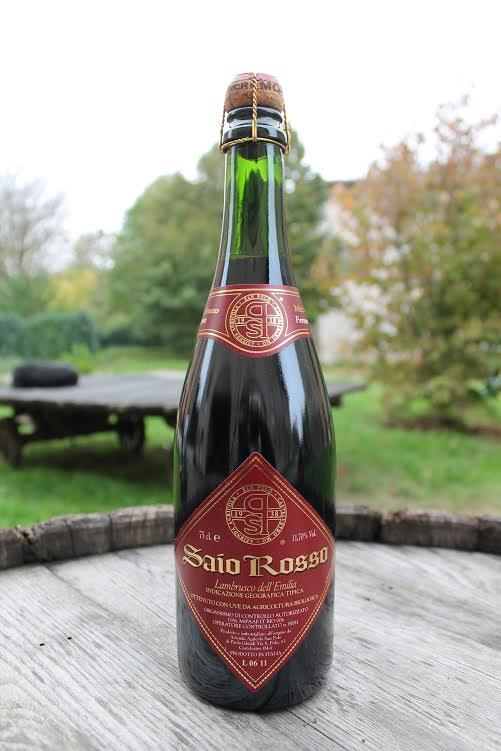Meet Lambrusco – a refreshing, foamy red wine, ideal for a family picnic, fresh egg pasta companion or an appetizer for a summer cocktail party alongside with a bowl of fruits or berries. Unlike Champagne, where the second fermentation occurs in the bottle, Lambrusco is treated by a method called Charmant – where the wine gets its bubbles while stored in large steel tanks, prior to bottling. However these days we see a variety of producers doing bottle fermented lambruscos.

The origin of Lambrusco.
Being originally produced in Emilia-Romagna (northern Italy), this lower alcohol content wine is primarily made from the Lambrusco family grape, in fact most red wines have 13/15 alcohol degrees but lambrusco rarely has more than 11/12. Ranging from classic dry to an exquisitely sweet fragrant, the frothy drink has made a long way from its popularity peak in the 70-ies to a gradual decline due to mass production and then a revival in the recent years. The reputation of a cheap alike-soda is long behind and today, a great variety of tangy and delicious Lambrusco wines are available; in this article we shall discuss the frizzante type – lightly sparkling red ones.
The difference between secco, dolce and amabile
Depending on the tannin, and alcohol amount, Lambrusco can harmonize with a wide assortment of dishes. When picking up the right sort for a barbecue or a romantic dinner, make sure you understand the labels: secco for dry, amabile for medium sweet and dolce – for a sweet dessert wine.
Saio Rosso Lambrusco from Agriturismo San Polo Castelvetro di Modena.
This Lambrusco offers a unique experience, San Polo is a strictly organic producer, who use the bottle fermented method like in champagne. The wine is aged for 3 years before being consumed. It is robust and rustic but yet fruit and pleasant, and ideal for meaty pasta, and roast beefs sort of dishes.
Lambrusco di Sorbara from Cavicchioli, for example, will add an unforgettable air and a rosy scent to a light fruit dessert. It can be drunk on its own as aperitivo before dinner.
Lambrusco of Venturini Baldini, on the other hand – with its cheerful spirit of raspberry balanced by a touch of bitterness – is known to be best served with traditional pasta and local Emilia Romagna cuisine.
Lambrusco Grasparossa Amabile from Chiarli vinery, made by one of the oldest wineries dating back to 1860, has its cheerful berry overtone and goes along with a Parmesan cheese or Prosciutto di Parma.
The best Lambrusco wines are affordable for all Lambrusco prices vary from 5 euros to 10 euros per bottle, which is another great reason to include this fizzy wine into your menu.
Vittorio Graziano Fontana dei Boschi’s lambrusco, for example, has a delicious aroma encompassing a strong purple berry scent blurred with notes of salami. It is best to be accompanied by cold cuts like Parma ham or another cured meat. Unlike traditional Lambrusco wines which are best to be drunk young, this one goes just as well being slightly aged.
Lambrusco Concerto from Medici Ermete has its multi-fragrant element providing a unique, persistent essence with a slightly bitter finish – it will fit perfectly into a barbecue brunch with an old-fashioned pollo alla cacciatora.
Ca’ Montanari Opera Lambrusco di Modena Secco is one of the best choices to supplement down-to-earth dishes such as the Lasagne or tagliatelle alla Bolognese. This dark colored, flowery-scented drink adds a long-lasting impression to any Italian-style classic dish.
Lambrusco is best to be served chilled
The ideal temperature for getting the utmost value is around 12/15 degree celsius. Serving it too warm might destroy the complexity of the multi-layer aroma bouquet: the alcohol, evaporating too fast will overlay the sophisticated perky fruit flavor for which this wine is so much appreciated.
***
Lambrusco red wines differ in hues, texture and sweetness-bitterness scale – each sparkling drink suits a different mood and occasion. Experiment with the wine-food combinations until you find the true spirit and the best match.
Discover more from Emilia Delizia
Subscribe to get the latest posts sent to your email.